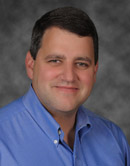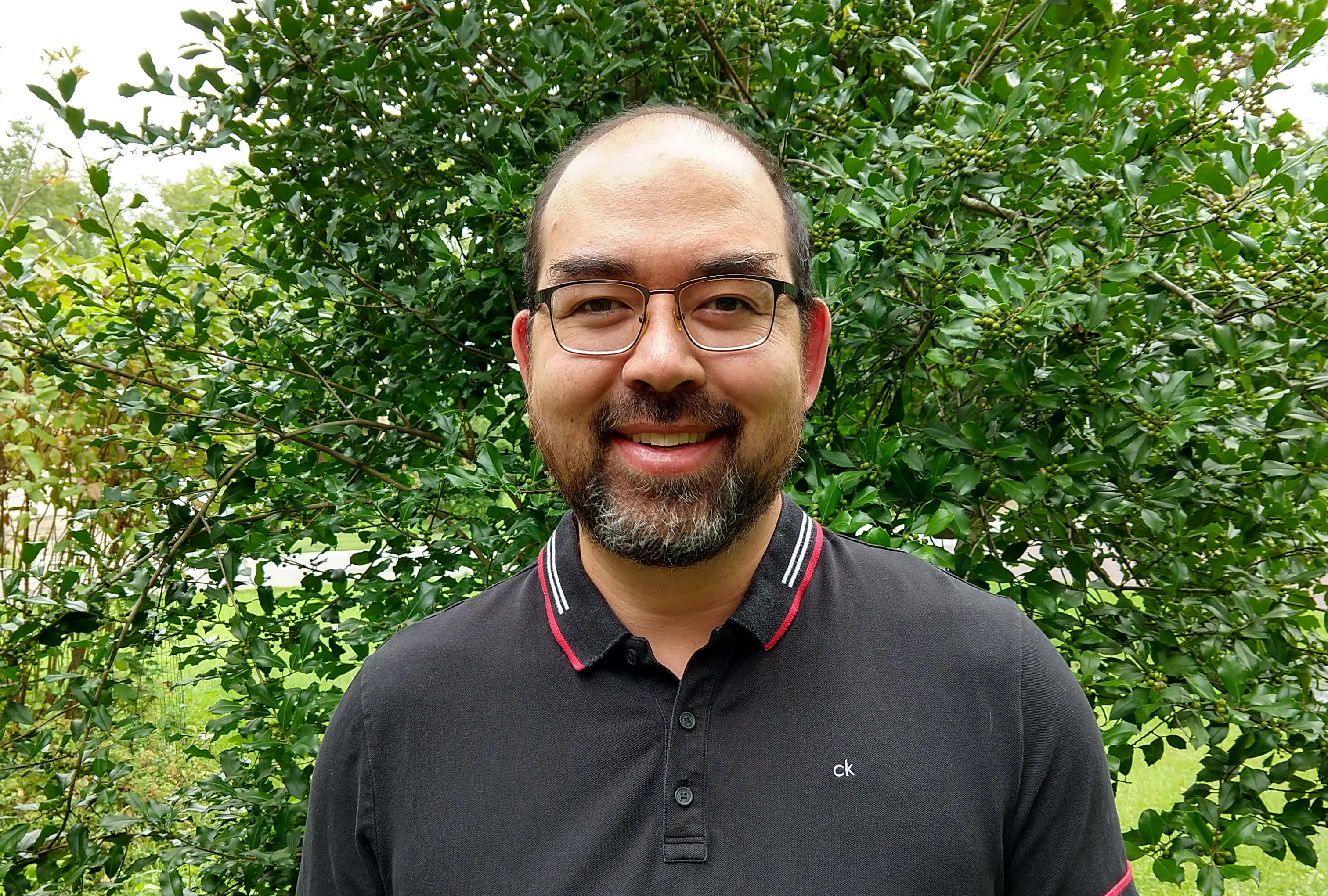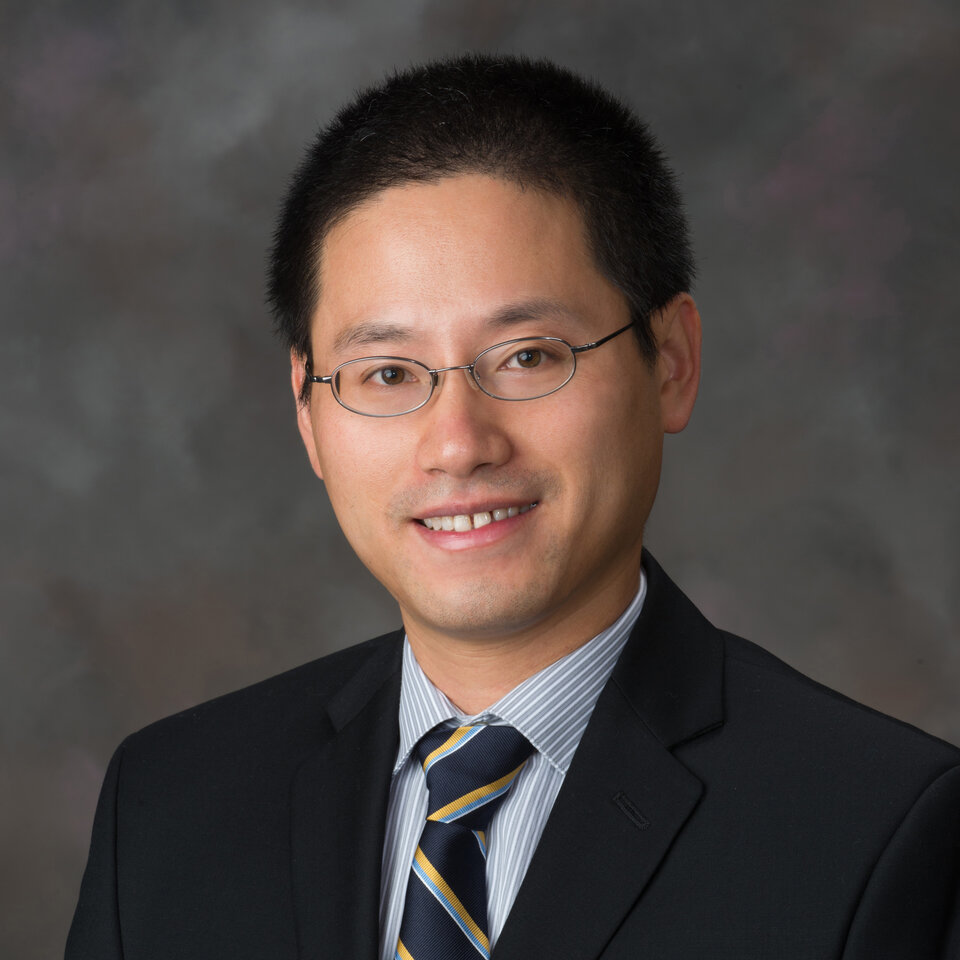Table of Contents
-
FREE
REGISTRATION
HERE!
-
New to supercomputing? Click
here.
-
KEYNOTE:
John
Towns,
National Center for Supercomputing
Applications,
University of Illinois at
Urbana-Champaign
-
PLENARY:
Henry Neeman,
University of Oklahoma
-
PLENARY:
Dan Stanzione,
Texas Advanced Computing Center,
University of Texas at Austin
-
PLENARY PANEL:
Ryan Doll,
Wichita State University
-
PLENARY PANEL:
Phil Redmon,
University of Missouri
-
PLENARY PANEL:
Hongfeng Yu,
University of Nebraska Lincoln
PLENARY
SPEAKERS
Deputy Director
National
Center for Supercomputing Applications
University
of Illinois Urbana-Champaign
Topic:
"ACCESS, ACCESS Resources, and
a Peek Over the Horizon"
Slides:
PDF
Talk Abstract
In this talk, I will provide a brief introduction the NSF-funded ACCESS (Advanced Cyberinfrastructure Coordination Ecosystem: Services & Support) program; a program established and funded by the NSF to help researchers and educators utilize the nation’s advanced computing systems and services. I will also touch on a couple of systems in the portfolio of resources allocated via ACCESS in which NCSA is either leading or is a significant partner. Finally, a few minutes will be spent on looking a bit over the horizon at AI and quantum computing.
Biography
Coming soon
Director
OU
Supercomputing Center for Education
& Research (OSCER)
Executive Director of Research Computing
Information
Technology
Associate Professor
College
of Engineering
Adjunct Associate Professor
School
of Computer Science
University
of Oklahoma
Topic:
"OSCER State of the Center Address"
Slides:
PowerPoint
PDF
Talk Abstract
The
OU
Supercomputing Center for
Education & Research
(OSCER)
celebrated its 23rd anniversary
on August 31 2025.
In this report,
we examine
what OSCER is,
what OSCER does,
what OSCER has accomplished
in its 23 years,
and where OSCER is going.
Biography
Dr.
Henry Neeman
is the
Director of the
OU
Supercomputing Center for Education &
Research,
Executive Director of Research Computing
for OU
Information
Technology
(IT),
Associate Professor in the
College
of Engineering
and
Adjunct Associate Professor in the
School
of Computer Science
at the
University of
Oklahoma.
He received his BS in computer science
and his BA in statistics
with a minor in mathematics
from the
State
University of New York at Buffalo
in 1987,
his MS in CS from the
University of
Illinois at Urbana-Champaign
in 1990
and his PhD in CS from UIUC in 1996.
Prior to coming to OU,
Dr. Neeman was a postdoctoral research
associate at the
National
Center for Supercomputing Applications
at UIUC,
and before that served as
a graduate research assistant
both at NCSA
and at the
Center for
Supercomputing Research &
Development.
In addition to his own teaching and research,
Dr. Neeman has collaborated with
dozens of research groups,
applying High Performance Computing techniques
in fields such as
numerical weather prediction,
bioinformatics and genomics,
data mining,
high energy physics,
astronomy,
nanotechnology,
petroleum reservoir management,
river basin modeling
and engineering optimization.
He serves as an ad hoc advisor
to student researchers
in many of these fields.
Dr. Neeman's research interests include
high performance computing,
scientific computing,
parallel and distributed computing
and
computer science education.
Dan
Stanzione

Executive Director
Texas
Advanced Computing Center
The University
of Texas at Austin
Topic:
"The NSF Leadership Computing Facility --
What's Coming Up Soon,
and Challenges for the Future"
Slides:
PowerPoint
PDF
Talk Abstract
The
National Science Foundation
funded a new
Leadership
Computing Facility,
led by the
Texas
Advanced Computing Center,
in July of this year.
Now that construction is under way,
this talk will cover
what users can expect (and when!),
and discuss upcoming challenges
in building/deploying HPC systems
in the age of AI.
Biography
Dan Stanzione is the Executive Director of the
Texas
Advanced Computing Center
(TACC)
at
The
University of Texas at Austin
and the Principal Investigator for
Wrangler.
He is also the PI for TACC's 10 PetaFlop
Stampede
supercomputer,
and has previously been involved in
the deployment and operation of the
Ranger
and
Lonestar
supercomputers at TACC.
He served as the Co-Director of
The
iPlant Collaborative,
an ambitious endeavor to build
cyberinfrastructure to address
the grand challenges of plant science.
Prior to joining TACC,
Dr. Stanzione was the founding director of the
Ira A. Fulton
High Performance Computing Institute
(HPCI)
at
Arizona
State University (ASU).
Before ASU,
he served as an AAAS Science Policy Fellow
in the
National
Science Foundation
and as a research professor at
Clemson
University,
his alma mater.
Ryan Doll
Assistant Educator and Data Center Director
College
of Engineering
Wichita
State University
Panel Topic:
"Research Computing across the Great Plains"
Panel Abstract
What's happening with research computing
in the Great Plains region?
How are we addressing national priorities
like AI and quantum computing?
What's on the horizon for
our states individually and
our region as a whole?
In this panel,
members of the Great Plains Network
will discuss our status, progress and outlook.
Biography
Ryan Doll serves as the Data Center Director for the College of Engineering and Deputy Director for High Performance Computing at Wichita State University. He is also a faculty member in the department of Electrical and Computer Engineering. Ryan helps support research computing, labs, and educational efforts across the institution.
Ryan is an active community member, serving as a presenter, co-chair, and chair at a number of super-computing events including the 4th NIST-NSF High-Performance Security Workshop and the 3rd OAK Supercomputing Conference.
Prior to returning to Wichita State, Ryan over 25 years in IT industry network engineer and solutions architect including working for IBM and several cloud providers. He holds a number of industry certifications for networking and unified communications. Ryan is also member of IEEE (Institute of Electrical and Electronics Engineers).
Phil Redmon

Technical Lead for HPC and Quantum Services
Research
Support Solutions,
Division
of IT
University
of Missouri
Panel Topic:
"Research Computing across the Great Plains"
Panel Abstract
What's happening with research computing
in the Great Plains region?
How are we addressing national priorities
like AI and quantum computing?
What's on the horizon for
our states individually and
our region as a whole?
In this panel,
members of the Great Plains Network
will discuss our status, progress and outlook.
Biography
Phil Redmon is
the Technical Lead for HPC and Quantum Services
at the
University of Missouri in Columbia.
He supports a wide range of compute workloads,
including GPU-accelerated research
and access to
cloud-based quantum computing platforms.
With a background in
systems integration,
infrastructure automation,
and performance optimization,
Phil helps researchers across the university
make effective use of
advanced computing technologies.
He works closely with leadership
to align these tools with
the university’s research and innovation goals.
Hongfeng Yu

Professor
School
of Computing
Director
Holland
Computing Center
University
of Nebraska Lincoln
Panel Topic:
"Research Computing across the Great Plains"
Panel Abstract
What's happening with research computing
in the Great Plains region?
How are we addressing national priorities
like AI and quantum computing?
What's on the horizon for
our states individually and
our region as a whole?
In this panel,
members of the Great Plains Network
will discuss our status, progress and outlook.
Biography
Hongfeng Yu is a Professor in the School of Computing and the Director of the Holland Computing Center (HCC) at the University of Nebraska–Lincoln. He earned his Ph.D. in Computer Science from the University of California, Davis, and is a recipient of the NSF CAREER Award. His research focuses on high-performance computing, scalable data analysis and visualization, and user interface and interaction. He has published more than 100 refereed articles and has been actively engaged in service to the research community. As Director, Dr. Yu leads HCC in delivering advanced research computing resources, including high-performance and high-throughput computing, large-scale storage, advanced networking, and evolving cyberinfrastructure, that support faculty and students across the University of Nebraska system and beyond. HCC is also a key collaborator in several regional, national, and international cyberinfrastructure projects to advance collaboration and innovation across disciplines.

